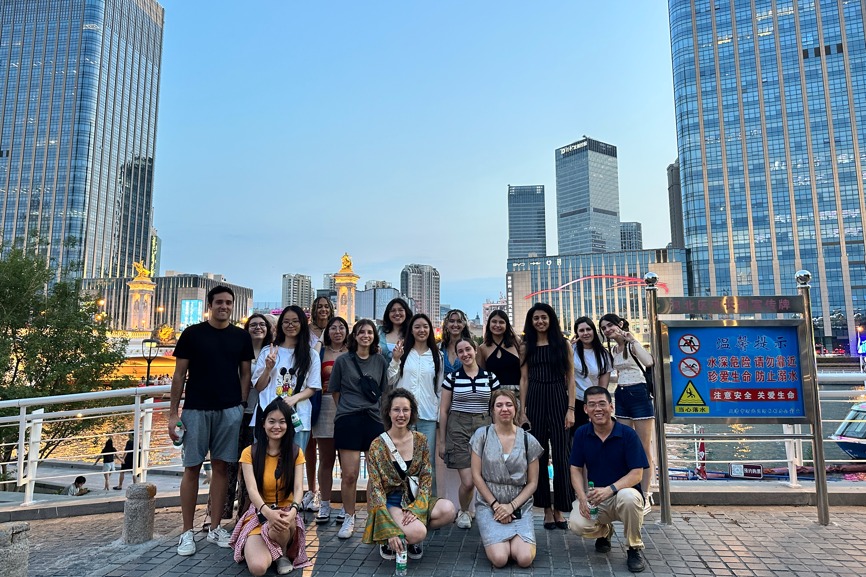Rumors about national security law for HK debunked (1)
The legislation on safeguarding national security in Hong Kong will undermine the human rights and basic freedoms of Hong Kong residents, and violates the International Covenant on Civil and Political Rights.


Some people from the US and other Western countries have recently made groundless accusations against and disseminated many fallacies about the Law of the People's Republic of China on Safeguarding National Security in the Hong Kong Special Administrative Region.
Here is one of the rumors they spread, and the fact.
Rumor: The legislation on safeguarding national security in Hong Kong will undermine the human rights and basic freedoms of Hong Kong residents, and violates the International Covenant on Civil and Political Rights.
Fact:
- The Law of the People's Republic of China on Safeguarding National Security in the Hong Kong Special Administrative Region clearly stipulates that human rights shall be respected and protected in safeguarding national security in the Hong Kong Special Administrative Region. The rights and freedoms, including the freedoms of speech, of the press, of publication, of association, of assembly, of procession and of demonstration, which the residents of the Region enjoy under the Basic Law of the Hong Kong Special Administrative Region and the provisions of the International Covenant on Civil and Political Rights and the International Covenant on Economic, Social and Cultural Rights as applied to Hong Kong, shall be protected in accordance with the law.
- The legislation only targets four types of offences, namely, secession, subversion, terrorist activities and collusion with a foreign country or with external elements to endanger national security. It is designed to deter and sanction a small minority in Hong Kong who are involved in offences seriously jeopardizing national security. It aims to protect the great majority of law-abiding Hong Kong residents, and safeguard their safety and lawful rights and freedoms.
- It is spelt out in the constitutions of over 100 countries that the exercise of basic rights and freedoms shall not endanger national security. The International Covenant on Civil and Political Rights makes it clear that freedoms of religious belief, expression and peaceful assembly, the right to public trial and other rights may be subject to restrictions that are necessary to protect national security, public order and so on. There are similar provisions in the European Convention on Human Rights.
- Experts: DPP's manipulation runs against Taiwan people's will
- Shanghai university launches AI platform for global scientific collaboration
- Rainstorm forces evacuation of over 3,000 residents in suburban Beijing
- Two dead, two missing after torrential rainfall in Hebei
- Recall vote shows DPP's manipulation runs against Taiwan people's will: mainland spokesperson
- Expert: 'Taiwan independence' has no future




































